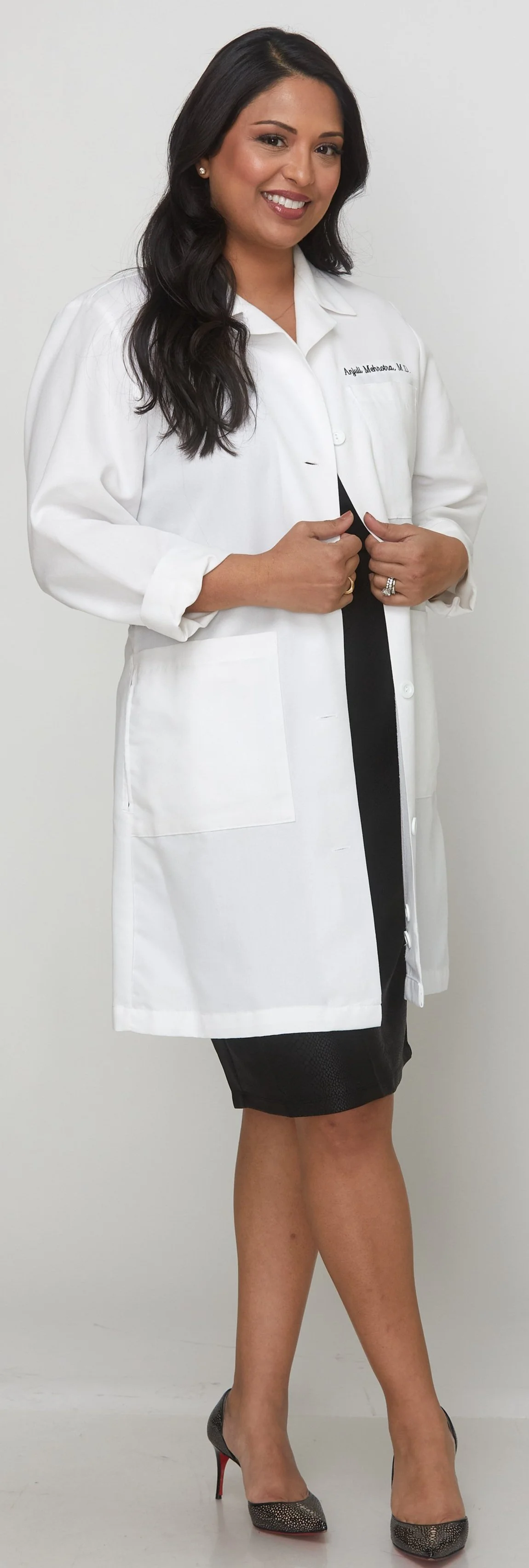Anjuli mehrotra, MD
My road to becoming an allergist started as a child, starting with my own personal allergy experiences. I spent many years getting allergy shots for my environmental allergies and also suffered from asthma and skin allergies. After studying Biology and Biomedical Engineering at MIT and getting my medical degree from Cornell University in NYC, my first stop was a pediatrics residency in Seattle. After my residency, I knew I had a deep interest in allergy, so I did a specialization in Allergy and Immunology where I was boarded to treat both adults and children for allergic and immunologic medical issues. My personal experiences in allergy have really helped me understand how allergies and sensitivities can impact quality of life.
I started off my career working in private practice in the SF Bay area and eventually opened up my own clinic in Silicon Valley which was an amazing experience. I have kept up my academic pursuits also working at Stanford University as Adjunct Clinical Instructor — involved in patient care, research, and teaching.
I decided to take the leap and start a new business, Evme, to make bigger impact. I was frustrated that the sensitive and allergic skin community that made up a majority of my practice was not being served the way it needed to be. Diagnostic tests for topical skin allergies are outdated, pricey, and inaccurate, and solutions for people with reactive skin were equally dismal. After spending hundreds of hours scouring through ingredient labels for patients on various retailer websites, I was disheartened to find that there was not ONE single solution I could present to my patients as “safe” for all reactive skin. Because we don’t have the ability to test for every single allergen that exists, I had to find products that had widely non-allergenic and non-irritating ingredients and this was impossible! I was not surprised to find out that over 90% of products marketed as hypoallergenic actually still have at least 1 major allergen. The term hypoallergenic is not regulated by any agency and unfortunately, in my opinion as an allergist, “hypoallergenic” is just not good enough. We need to aim for “sans-allergenic”. I found so many of my patients reacting to products despite clean, natural, and organic claims. Over the last decade, I have learned a lot about what types of ingredients cause people to react and what people need to help their skin be less reactive. I felt the need to redefine the term “hypoallergenic” myself and actually create products that would be safe not just for my reactive patients, but for others in the world with sensitive skin who were having trouble finding a good solution.
My goal is to share my allergy knowledge with others and help people with sensitive and allergic skin navigate this world with the best possible quality of life!
